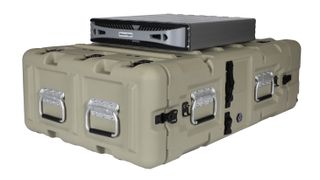Western Digital launches rugged edge compute servers
Rugged servers are equipped to handle multiple kinds of data crunching workloads

Storage giant Western Digital (WD) has launched its Ultrastar Edge series of rugged servers aimed at bringing core computing infrastructure closer to the edge.
According to WD, the new servers are designed for 5G, Internet of Things (IoT) and cloud computing deployments, and can process data even in remote deployments with no network connectivity.
Ultrastar Edge is WD’s response to the growing demand for “distributed intelligent architectures” to help collect and process data at the edge.
- Here's our list of the best small business servers available
- Also check out our list of the best rugged smartphones available
- And these are the best rugged laptops
"The growth in data creation at the edge, the opportunities to extract value from that data, and the total available markets and customers innovating and doing work at the edge, gives us a great opportunity for our new Ultrastar Edge server family,” said Kurt Chan, vice president, data center platforms at Western Digital.
Extreme use
The Ultrastar Edge servers support up to two 2nd generation Intel Xeon scalable processors, a Nvidia T4 GPU and eight Ultrastar NVMe SSDs for up to 61TB of storage.
The servers also include two 50Gb or one 100Gb Ethernet connection for ferrying the processed data back to the customer’s data center or cloud when connected.
The new line of servers come in a tamper-evident enclosure that is built as per the FIPS 140-2 Level 2 security standard.
Are you a pro? Subscribe to our newsletter
Sign up to the TechRadar Pro newsletter to get all the top news, opinion, features and guidance your business needs to succeed!
There’s also a military-spec ruggedized version, the Ultrastar Edge-MR, which is designed for use in extreme environments and can withstand shocks, vibrations, and even electromagnetic interference.
WD has announced that the Ultrastar Edge servers will be available in Q4 2021, although there’s no pricing information available currently.
Notably, the WD launch comes a few months after Oracle announced a similar offering in the form of their Roving Edge Infrastructure devices, which they offer on a subscription basis.
- We’ve also rounded up the best tech for hybrid working
With almost two decades of writing and reporting on Linux, Mayank Sharma would like everyone to think he’s TechRadar Pro’s expert on the topic. Of course, he’s just as interested in other computing topics, particularly cybersecurity, cloud, containers, and coding.

